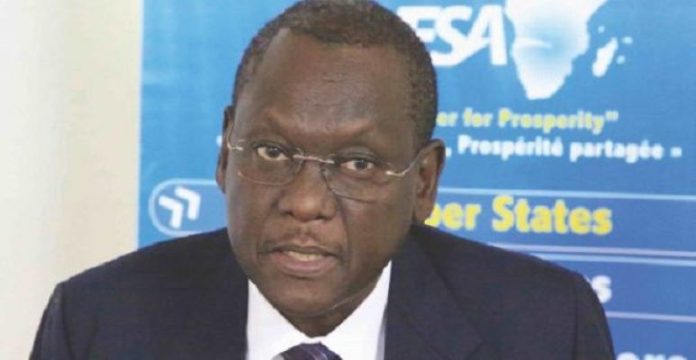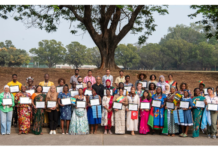African Development Bank (AfDB) member countries want to be food secure amid climate change, COVID 19 and other headwinds through a ‘home grown’ and harmonised data sharing systems to bolster agriculture sector development, according to a strategic paper.
The Africa Development Bank had noted during a five-day-agricultural statistics workshop in Lusaka from 29 August to 2 September and dubbed: “2022 Regional Compilation and Validation Workshop on the Minimum Set of Core Data (MSCD) for African Development Fund (ADF) Countries”, the stunting growth of the agriculture sector spurred by COVID 19, which is disrupting data collaboration among players to ascertain food needs and interventions.
It challenged all 37-AfDB member states to invest in quantity, quality and heightened dissemination of Agricultural rural information for sustained food security and endeavor to insulate the continent from food versus, Bio-fuels, global warming, environment, gender and other headwinds.
According to the Bank’s country economist and officer in Charge of the AfDB Country Manager in Lusaka-Agola Oluoch the lack of reliable and updated data threatens growth of agriculture and the rural economy, which is the backbone of most of the affected countries’ economies.
These economies, arguably, remain vital to Africa, contributing at least 40% to GDP, over 75% to total exports and above 80% of employment for most African countries, and food security hence the need for collaboration.
To overcome the shortcomings, the workshop reminded and recommended to member states to make reference and use of the Consultancy on Minimum Set of agricultural core Data (MSCD) guidelines and user manuals and be able to comply with required standard concepts and definitions, when compiling such data.
According to data available to FRA, the 37-AfDB countries seek to develop a communication strategy for statistics as a means of creating awareness, sensitization and advocacy to arguably enhance quality data collection and compilation from the many data producers.
There is a need to encourage a strengthened partnership between Regional Economies. Communities like ECOWAS, COMESA, SADCC, etc., in order to improve agricultural data collection. All countries agreed to follow the same international standards/guidelines when producing data to ensure compatibility of data.
Countries were encouraged to develop a communication strategy for statistics as a means of creating awareness, sensitization and advocacy. This is to enhance quality data collection and compilation from the many data producers.
It was resolved to have in-house consultation between the NSO and Ministry of Agriculture to have a consensus in a common submission of their TA priority needs.
All member countries should establish Supply Utilization Accounts (SUA) and Food Balance Sheets (FBS) compilation systems where that is not the case yet, given their importance as one of key data sources to feed into the MSCD.
Countries that had not yet submitted their data were asked to complete and update the four templates by 16 September this year by updating the MSCD from the year 2000 to 2021.
Countries were tasked to own the MSCD collection process and make use of online platforms like google meet, Zoom, Teams for Technical Working Group (TWG) meetings to reduce costs of face-to-face meetings.
Countries were tasked to develop a communication strategy for statistics and create awareness, sensitization and advocacy to enhance quality data collection and compilation from the many data producers.
There is a need for partnership between Regional Economic Communities like ECOWAS, COMESA, and SADC to improve agricultural data collection.
There is need to establish Supply Utilization Accounts (SUA) and Food Balance Sheets (FBS) compilation systems where that is not the case yet, given their importance as one of key data sources to feed into the MSCD, and the opportunity they offer to estimate some important indicators like SDGs and Food Loss Index).
The Common Market for Eastern and Southern Africa (Comesa) was tasked to provide assistance to ADF countries facing challenges in compiling their updated MSCD. The COMESA and AfDB are expected to always keep in copy focal persons when writing to heads of institutions for any programs relating to MSCD.
At the same event, Zambia Statistical Agency (ZAMSATS) Mulenga Musepa cited COVID- 19 and the poor funding to National Statistical Systems generally by AfDB member states to weaken national capacities to generate data.
He challenged African Governments to invest in statistics for the agriculture sector to become buoyant and contribute effectively to food security and avert hunger and poverty on the continent driven by various local and geo-political factors.
“It is a well-known fact that the NSS in Africa are weak and poorly funded, this makes it difficult for regional member countries to undertake statistical operations in line with the international best practices for optimal evidence based policy dialogue.” He said.
Common Market for Eastern and Southern Africa deputy secretary general-administration, Kipyego Cheluget commended the introduction of the SCB V-a compilation of updated minimum set of data for last year.
This will ensure the realization of the realignment of the agriculture development in terms of economic development and enhanced living standards, fighting poverty and increasing food security, all forming part of the Sustainable Development Goals (SDGs), all vital to the development of the sector.
The Regional Economic Bloc remains resolved to promote the growth of the agriculture sector as espoused under the 2021-2025 Medium Term Strategic Plan, which among other pillars on productive integration recognizes the importance of the productive sector in enhancing regional integration-given the significance of the sector in the named pillar.








